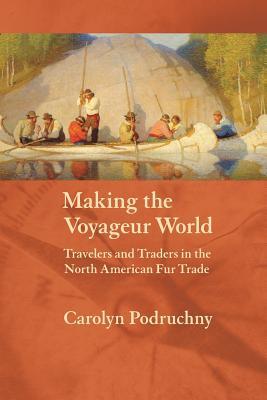Making the Voyageur World shows that the voyageurs created distinct identities shaped by their French-Canadian peasant roots, the Aboriginal peoples they met in the Northwest, and the nature of their employment as indentured servants in diverse environments. Voyageurs' identities were also shaped by their constant travels and by their own masculine ideals that emphasized strength, endurance, and daring. Although voyageurs left few conventional traces of their own voices in the documentary record, an astonishing amount of information can be found in descriptions of them by their masters, explorers, and other travelers. By examining their lives in conjunction with the metaphor of the voyage, Podruchny not only reveals the everyday lives of her subjects--what they ate, their cosmology and rituals of celebration, their families, and, above all, their work--but also underscores their impact on the social and cultural landscape of North America.

Making the Voyageur World: Travelers and Traders in the North American Fur Trade
Making the Voyageur World shows that the voyageurs created distinct identities shaped by their French-Canadian peasant roots, the Aboriginal peoples they met in the Northwest, and the nature of their employment as indentured servants in diverse environments. Voyageurs' identities were also shaped by their constant travels and by their own masculine ideals that emphasized strength, endurance, and daring. Although voyageurs left few conventional traces of their own voices in the documentary record, an astonishing amount of information can be found in descriptions of them by their masters, explorers, and other travelers. By examining their lives in conjunction with the metaphor of the voyage, Podruchny not only reveals the everyday lives of her subjects--what they ate, their cosmology and rituals of celebration, their families, and, above all, their work--but also underscores their impact on the social and cultural landscape of North America.